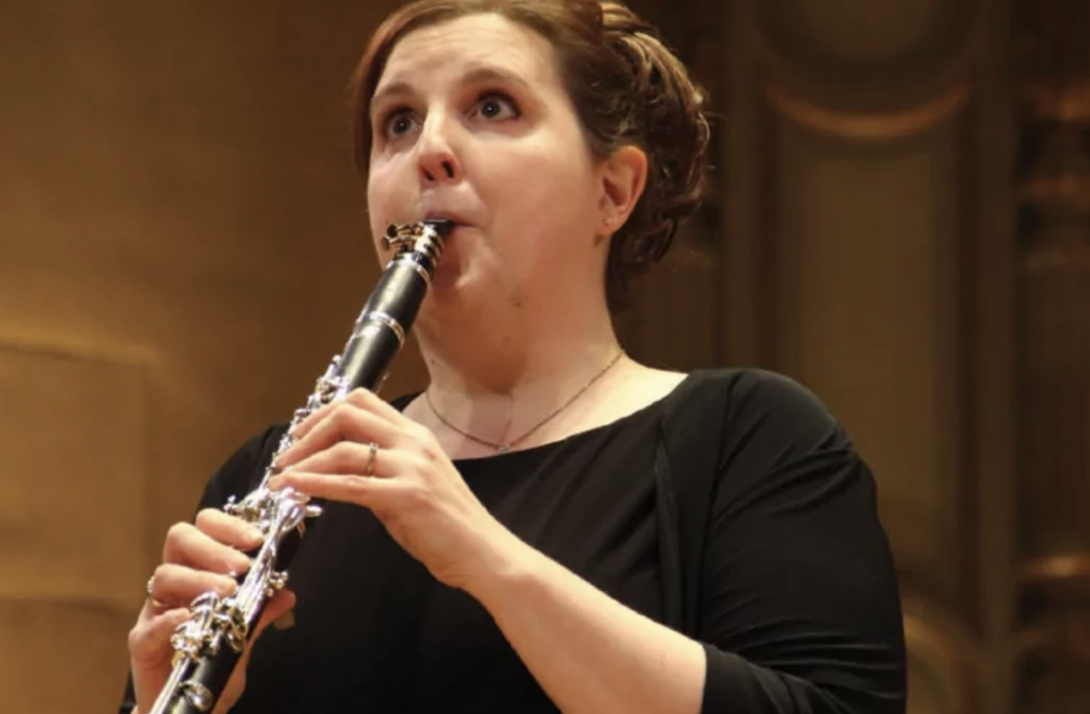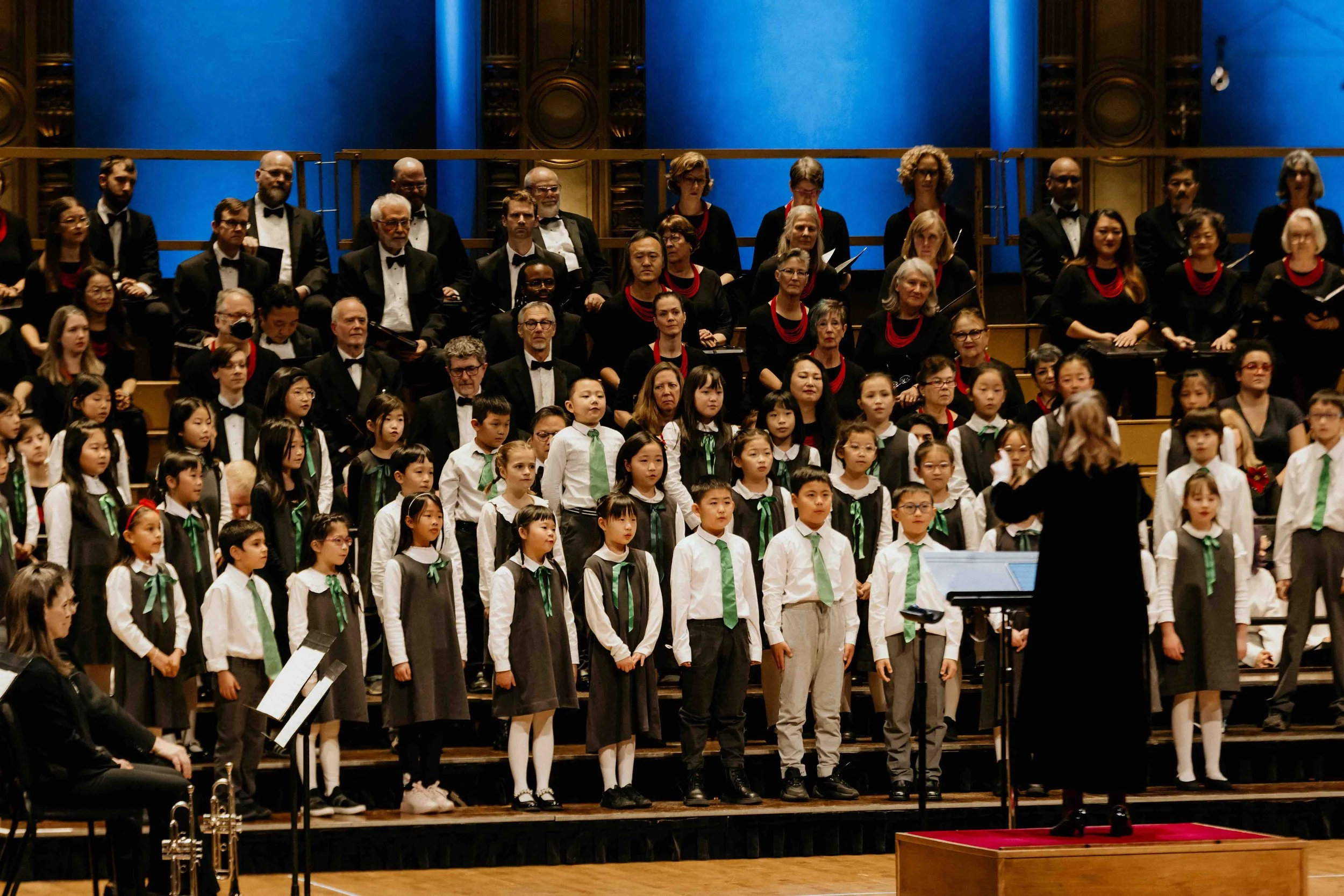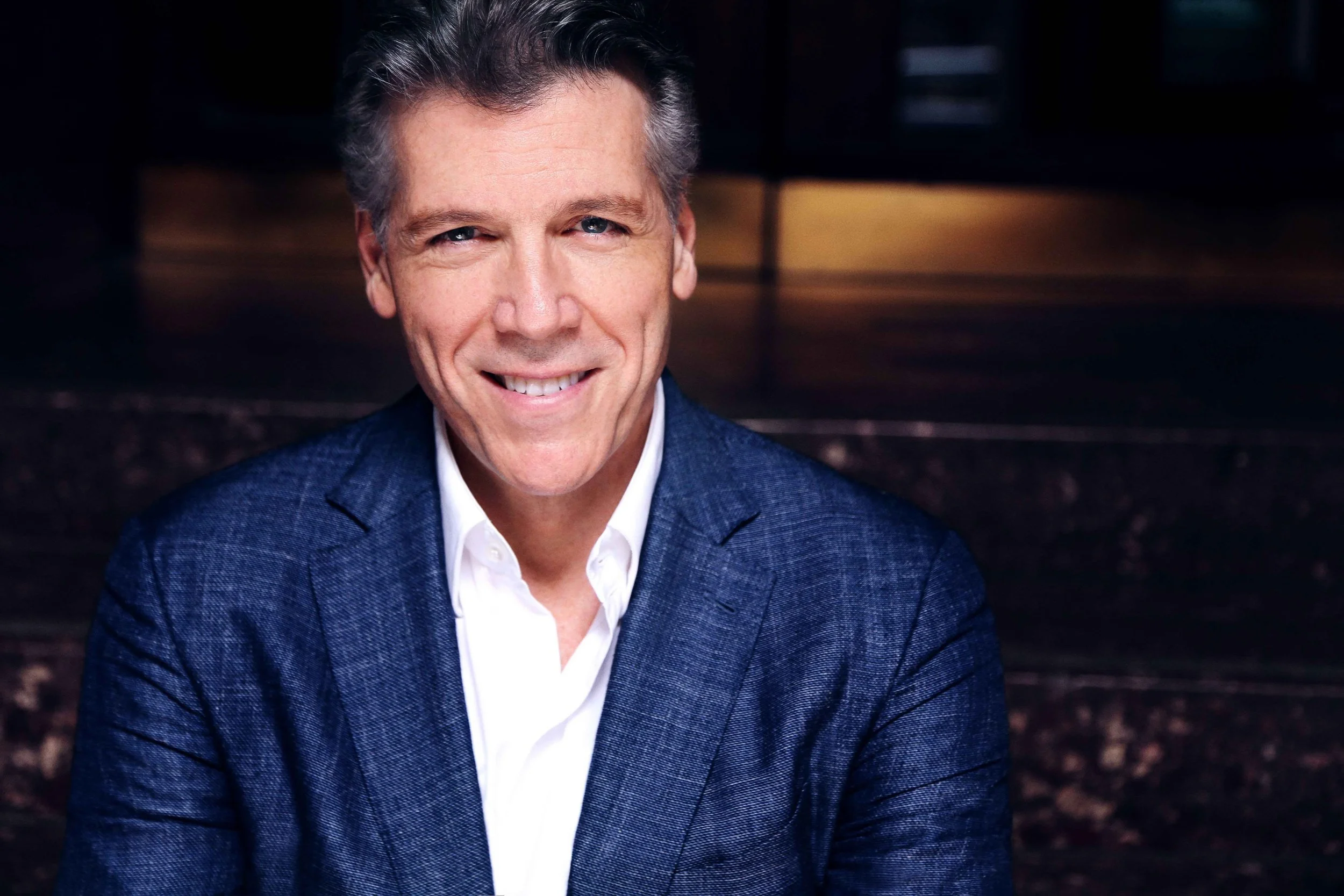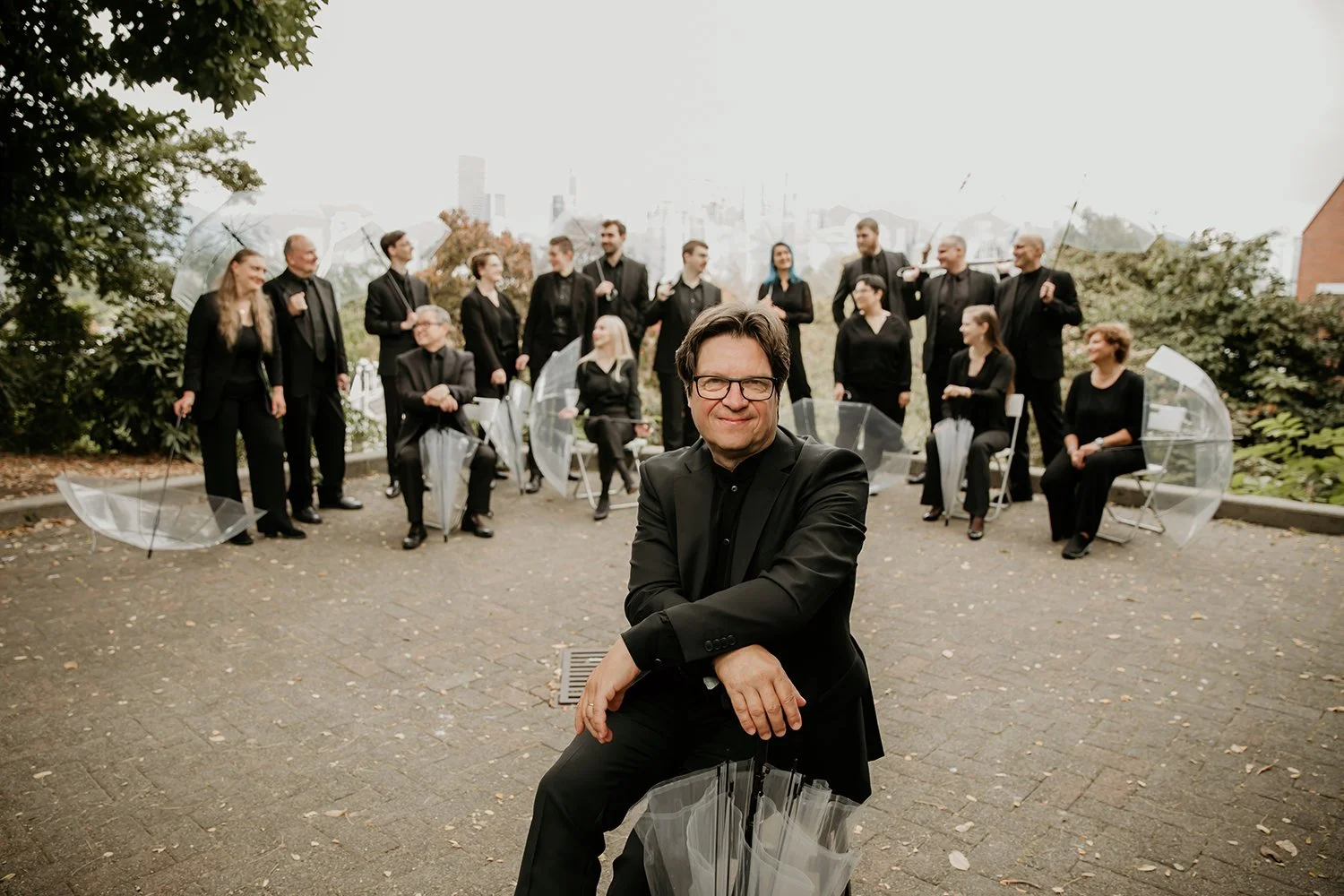Vancouver Symphony Orchestra shows why the term “minimalism” may be becoming passé
December 6 concert features pieces by Philip Glass, Steve Reich, John Adams, and a world premiere by Linda Catlin Smith
VSO music director Otto Tausk.
Jeanette Jonquil.
Vancouver Symphony Orchestra presents Philip Glass’ Eleventh Symphony on December 6 at the Orpheum
A PIECE FOR two performers made up entirely out of handclaps. A chamber-music ensemble featuring the kind of cheap Farfisa organs a garage band might play. Lengthy meditations for solo saxophone and tape echo. When Steve Reich, Philip Glass, and Terry Riley started writing and performing their own music in the 1960s, no one had ever heard anything like it, and it fully deserved the tag it quickly acquired: minimalism.
Now, though, maybe not so much. Reich, for one, has said that any musician using the M-word in his presence would have their mouth washed out with soap, although we think he was joking. Glass, an acute and occasionally droll observer of his own compositional process, apparently prefers the succinct term “repetitive music”. While still used to describe contemporary art music based in phased rhythms, cellular structures, and consonant harmony, the term “minimalism” may be becoming passé—and with the program on offer at the Orpheum on December 6, the Vancouver Symphony Orchestra is bent on showing why.
There’s little that’s minimalistic about Glass’s Symphony No. 11, a juggernaut of onrushing orchestral power that somehow combines a decidedly martial feel with a hint of North Indian melody. Reich’s Jacob’s Ladder, featuring sublime singing from his long-time collaborators Synergy Vocals, has at least as much to do with Renaissance liturgical music as with the creative ferment of New York City and San Francisco circa the Summer of Love. Gnarly Buttons, from Glass and Reich’s slightly younger colleague John Adams, breaks entirely from minimalist orthodoxy by incorporating both a deranged, banjo-led hoedown and an overtly loving and emotional eulogy for the composer’s father. As for Toronto-based Linda Catlin Smith’s Mountain? Well, we have little to say about how it will sound, as Friday’s performance is its world premiere. But VSO music director Otto Tausk, who has the score in hand, has high expectations.
“On paper, it looks like changing textures is what it’s about,” he explains via Zoom. “It starts off with a violin solo, a very long violin solo. It’s almost like a violin concerto, somehow, and what I’m expecting is a kind of loneliness to come from that violin-solo start. But then, actually, it gets comfort from the rest of the orchestra—from the rest of the harmony and from the environment, so to speak.”
Despite his own ambivalence about the term minimalism—“You have to name it something,” he notes—Tausk is effusive about all four works that we’ll hear, and about the style in general. “Classical music has gained a lot from that repertoire,” he points out. “Lots of people feel they can relate to that kind of music, which then opens the door to other kinds of classical music. The accessibility is not… How do I say this? It’s not making it easy music; it’s connecting with your audience on another level and in another way. Listening to music by Steve Reich, for instance, opens up some part of your brain and your heart that is not opened up with other music, and whatever name tag you put on it is not important for me. What counts for me is how you experience it as a listener and a musician. What does it mean to you? How does it move you? Does it help you in any way to experience the world in a different light, or does it help you to connect with yourself in another way? This kind of music does that in a very powerful and direct and completely open way.”
One way to approach this program, given that Reich is 88, Glass is 87, and Adams is 77, is to view it as a prismatic view of something that will affect us all: mortality. That’s my take on it, anyway, and Tausk thinks there may be something to it. He certainly concurs when it comes to Adams’s clarinet showcase Gnarly Buttons, which he considers a personal favourite.
“It was written for his father, who suffered from dementia—or Alzheimer’s disease, I should say,” he points out. “It’s a kind of farewell to his father, who taught him to play clarinet, but you can also hear how Alzheimer’s disease develops. Everything becomes very strange: the world becomes completely different, and it’s pretty hard to understand the world around you, but the one thing that remains, very often, is music. Music is the first thing that starts in your life: as a baby, you don’t understand the words ‘Hello, my dear,’ but you understand the music behind the words, the intonation. So music is what comes first, and it’s also what stays when you get very old and you suffer from memory loss, et cetera. You don’t recognize the world around you anymore, but you can still sing a song, and you can still enjoy music. So I find that very touching, and it’s beautiful.”
Making Gnarly Buttons even more beautiful is that VSO principal clarinetist Jeanette Jonquil will be the featured soloist. “I’m really happy that Jenny is playing the solo,” Tausk enthuses. “She’s someone who is very open to colouring melodies in a certain way or phrasing in a new way, and she has a very personal voice. I always get a lot of ideas, and colourful ideas, from Jenny—and she’s also someone with a lot of humour, so I think for the John Adams that’s ideal. That second movement, the hoedown with the mad-cow disease? This is so funny! This is such a weird thing with the banjo and the mandolin and the guitar and the cow going ‘Moooo’… It’s totally absurd, but at the same time, if you have a feeling for that kind of humour, it’s going to be phenomenal.”
Glass’s Symphony No. 11 is powerful in a very different way. Although it has passages of sustained beauty, it’s far fiercer rhythmically, seeming to suggest the almost crushing inevitability of time and death. But Glass, a serious student of Tibetan Buddhism, also conveys a kind of warm fatalism, at times even laughing in the face of the inevitable.
“The music is kind of hidden at times because of the repetitiveness, but in a very different way than, for instance, Beethoven is repetitive,” Tausk observes. “Beethoven’s repetitiveness, it comes at you and there’s no escape. With the repetitiveness in Philip Glass, you can enter different layers. The music is all about different layers, but it also speaks to different layers in yourself. It’s very much ‘experience’ music, and if you experience it in the hall, something happens—and for everyone, something different happens.”
As for Reich’s Jacob’s Ladder, inspired by the Hebrew patriarch’s vision of heaven in the Biblical Book of Genesis, it’s simply as close to paradise as one can get in a concert hall.
“I am not an expert on [Reich’s] inner world, but I connect to that idea of music being able to transport us into another state of mind—and another world, perhaps,” Tausk says. “Jacob’s Ladder has a strange simplicity that kind of opens the door to being in touch with much more than you usually are.”
The conductor laughs, and continues: “Now, of course, as a musician in an orchestra, you have to make sure that you’re playing the right notes, and that everything is properly performed. Yet there’s also an element of going above the notes and connecting with the audience.
“For me, the challenge is always to not be lost in that feeling,” he adds. “I always have to make sure that I stay focused on what’s actually happening, now, on-stage. But to be honest it’s like swimming. If it goes well, if you’re comfortable, it can transform you into something extraordinarily beautiful.”
![]()

























